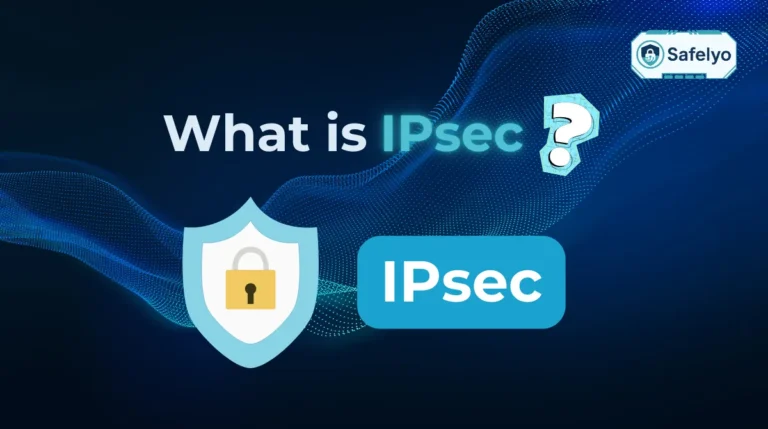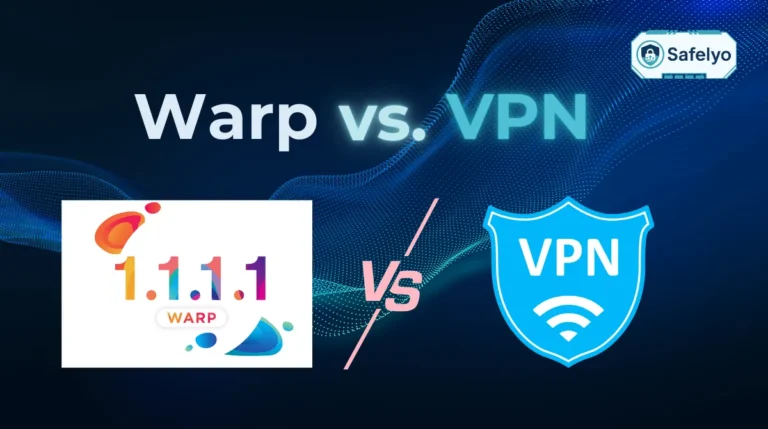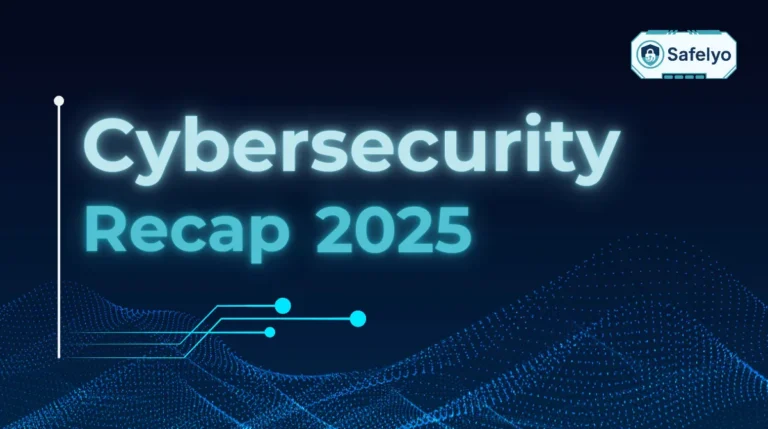When you’re researching VPNs or online privacy, you’ll inevitably encounter the shadowy terms ‘Five Eyes’, ‘Nine Eyes’, and ‘Fourteen Eyes’. They sound like something out of a spy movie, but they represent a very real network of global surveillance.
In today’s digital world, understanding who you’re protecting your data from is a fundamental part of online security. These alliances represent the most powerful state-sponsored surveillance operations in history, and the country your VPN is based in can determine whether your data is at risk.
As a privacy analyst who vets these services daily, I’ve seen the ‘jurisdiction’ factor become a key selling point. Yet, many users choose a VPN based on this single factor without truly grasping the different tiers of risk involved, or what these ‘Eyes’ alliances actually mean for their data. Understanding what are 5/9/14 eyes is crucial to making an informed choice.
In this comprehensive guide, you’ll discover:
- Who the 5, 9, and 14 Eyes countries are, explained with a simple analogy.
- The real-world privacy risks these surveillance alliances pose.
- Why your VPN jurisdiction is a critical piece of the privacy puzzle.
- How to assess any privacy service to ensure your data stays safe.
Don’t let your privacy decisions be guided by spy-movie jargon. Let me demystify these powerful surveillance alliances and give you the clarity needed to protect your digital life.
The Eyes Alliances in 30 seconds
The 5, 9, and 14 Eyes are tiered intelligence-sharing alliances between various countries, with the Five Eyes (USA, UK, Canada, Australia, NZ) at the core. They pose a privacy risk as members can share surveillance data with each other, potentially bypassing their own domestic privacy laws. For maximum security, it’s recommended to choose a VPN or service headquartered outside of the 14 Eyes countries.
1. Explaining the Eye Alliances: What are 5/9/14 eyes?
The best way to understand the structure of these surveillance alliances is to stop thinking about countries and start thinking about circles of friends. It’s an analogy I’ve used for years to explain these complex relationships in a simple, human way.
1.1. The Five Eyes (The Best Friends)
Think of the Five Eyes countries (USA, UK, Canada, Australia, New Zealand) as a group of five best friends who have been sharing secrets since childhood.
- They have an “all-for-one” pact based on a deep history of trust.
- They share almost everything they find out with each other automatically and with very few questions asked.
- This is the most intimate and integrated level of cooperation.
1.2. The Nine Eyes (The Good Friends)
This group adds four “good friends” (Denmark, France, the Netherlands, Norway) to the circle.
- The five best friends still share everything with each other, but they only share some of their secrets with this wider group.
- These good friends also share information back, but the flow isn’t as free or automatic as it is within the core group of five.
1.3. The Fourteen Eyes (The Acquaintances)
This is the largest circle, adding five more “acquaintances” (Germany, Belgium, Italy, Spain, Sweden).
- They are all part of the same club and cooperate on specific issues when it’s mutually beneficial.
- However, the level of trust and automatic information sharing is much lower. They are partners on specific matters, but they are not part of the inner circle.
The key difference between 5, 9, and 14 eyes is the depth and breadth of intelligence sharing. The smaller the number, the deeper the trust and the more integrated the cooperation.
Here’s a quick summary:
| Alliance Tier | Analogy | Who’s In It | Level of Cooperation |
|---|---|---|---|
| Five Eyes | The Best Friends | US, UK, Canada, Australia, NZ | Highest. Deep integration and automatic data sharing. |
| Nine Eyes | The Good Friends | Five Eyes + Denmark, France, Netherlands, Norway | High. Regular, but more selective, intelligence sharing. |
| Fourteen Eyes | The Acquaintances | Nine Eyes + Germany, Belgium, Italy, Spain, Sweden | Medium. Cooperation on specific threats and issues. |
2. The surveillance alliances mapped: a visual guide
To visualize the structure of the Five, Nine, and Fourteen Eyes, it’s helpful to think of them as concentric circles. Each circle represents levels of trust and intelligence sharing among the countries involved. The closer a country is to the center, the deeper its involvement in the surveillance network.
When I evaluate a VPN jurisdiction, this is the mental model I use. Is the VPN’s home base in the core, the outer ring, or completely outside the circles?
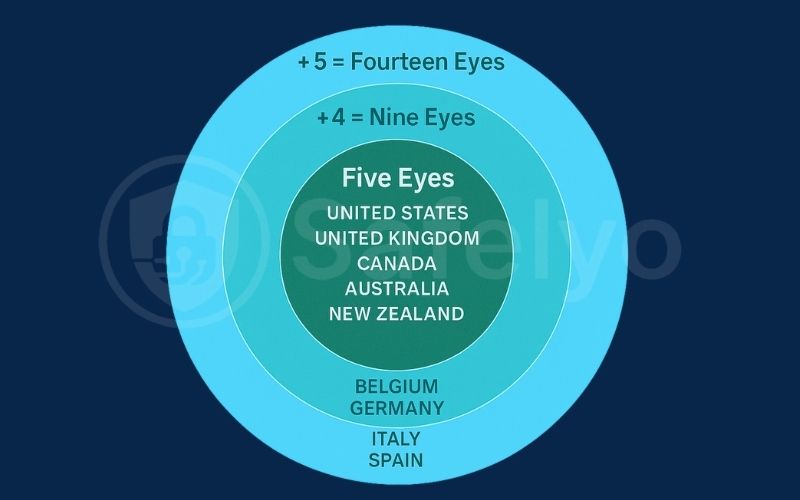
This infographic makes the tiered structure immediately clear. The Five Eyes form the tight-knit core, and each subsequent layer represents a step outward in the intelligence alliance, with a corresponding decrease in the automatic flow of shared data. The most privacy-conscious choice is always a service located completely outside of these circles.
3. Why should you care? The privacy risk explained
So, why does a decades-old intelligence alliance matter to you today? The reason is a significant legal loophole that directly impacts your digital privacy.
3.1. The Legal Loophole
The primary concern for privacy advocates is how the alliance allows member countries to circumvent their own laws.
Let’s say a country like the US has domestic laws that prevent its intelligence agencies, like the NSA, from spying on its own citizens without a warrant. In theory, this protects your civil liberties. However, the NSA can use the Five Eyes network as a backdoor. They can ask their UK partner, GCHQ, to collect data on an American citizen and then simply “share” that intelligence back.
This isn’t just a theory. The documents leaked by the whistleblower Edward Snowden in 2013 provided concrete proof that this type of reciprocal surveillance happens on a massive scale. They are, in effect, outsourcing their domestic spying to each other.
3.2. The VPN Jurisdiction Problem
This brings us to the critical issue of VPN jurisdiction. If a VPN company is legally headquartered in any of the Fourteen Eyes countries, it operates under a legal framework that could force it to do two things:
- Log user data, even if they have a “no-logs” policy.
- Share that data with their government’s intelligence agencies.
Once that data is in the hands of one member, it can easily be shared across the entire vast network of surveillance alliances. This directly undermines the very privacy a VPN is supposed to provide.
From my experience reviewing these services, choosing a VPN is an act of trust. It becomes much harder to place that trust in a company that can be legally compelled by its own government to work against your privacy interests. This is the fundamental risk of choosing a VPN within a 14 Eyes country.
4. The VPN jurisdiction risk assessment
Not all “Eyes” countries are created equal when it comes to privacy risk. While the safest choice is always a VPN outside the 14 Eyes jurisdiction, it’s helpful to understand the different tiers of risk.
However, I want to add a crucial, nuanced point that many guides overlook: A rock-solid, independently audited no-logs policy is more important than jurisdiction. A VPN can’t share data it doesn’t have. With that in mind, here is a practical risk assessment I use when evaluating a service.
| If a VPN is based in… | Privacy Risk Level | Explanation |
|---|---|---|
| A Five Eyes Country (e.g., USA, UK) |
Very High | These countries form the core of the surveillance alliance. They are subject to the most invasive data-sharing agreements and have a documented history of compelling tech companies to hand over user data. |
| A 9/14 Eyes Country (e.g., France, Germany, is Sweden in 14 eyes? Yes) |
Moderate to High | These nations still have sophisticated surveillance capabilities and formal intelligence sharing partnerships with the Five Eyes. While the risk may be slightly lower than the core five, their privacy laws can be problematic, and they are not considered a safe VPN jurisdiction. |
| A ‘Privacy Haven’ (e.g., Panama, Switzerland, BVI) |
Low | These countries have strong data protection laws, are not part of the Eyes alliances, and have no legal obligation to collect or share data with them. This is the ideal legal environment for a privacy-focused company. |
The Golden Rule: No Logs > Jurisdiction
Let me be clear: a VPN with a rock-solid, independently audited no-logs policy is safer, even if based in a 14 Eyes country. This is better than a VPN with a shady, unproven policy in a supposed “privacy haven.”
Why? Because if there truly are no logs to begin with, there is nothing to share. A government can compel a company to hand over data, but it can’t compel it to hand over data that doesn’t exist.
The ideal choice, the one I always recommend, is a VPN that gives you both: A safe VPN jurisdiction and a publicly audited no-logs policy. This combination provides the strongest possible legal and technical protection for your privacy.
5. How to avoid the 14 Eyes and protect your privacy
Understanding the risks of the surveillance alliances is the first step. The next step is taking concrete action to protect yourself. Based on my years of testing privacy tools, here are the most effective steps you can take to shield your digital life from this kind of mass surveillance.
5.1. Choose a VPN outside the 14 Eyes
This is the foundational step. When you’re choosing a VPN, make its legal home – its VPN jurisdiction – a top priority. You are actively choosing a stronger legal framework to protect your data. I consistently recommend VPNs headquartered in established privacy haven jurisdictions.
Excellent choices include:
These countries have robust privacy laws and are not beholden to the Five Eyes.
- Panama (home to NordVPN)
- The British Virgin Islands (home to ExpressVPN and Surfshark)
- Switzerland (home to Proton VPN).
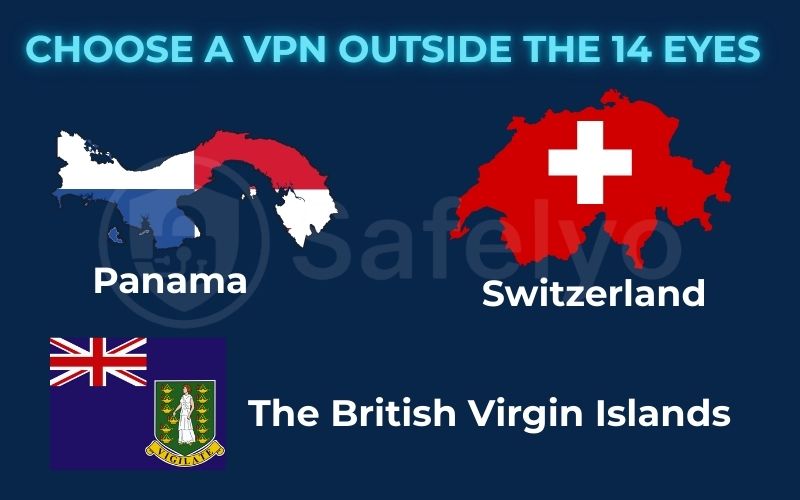
5.2. Insist on an Audited No-Logs Policy
This is how you verify a VPN’s promises. Don’t just take their word that they don’t keep logs. In my reviews, I give significant weight to providers who have subjected their systems to scrutiny from independent, third-party auditors (like major firms PwC or Deloitte).
Look for a link to the audit report on their website.
A trustworthy VPN will be proud to show you the proof. This is your best assurance that even if a government asks for data, there is none to be found.
5.3. Use End-to-End encrypted services
Your VPN protects your data in transit, but you should also protect the content of your communications.
- For messaging, choose apps like Signal, which uses end-to-end encryption by default. This means not even the company that runs the service can read your messages.
- For email, consider services like Proton Mail. It provides strong end-to-end encryption, ensuring only you and the recipient can see the content.
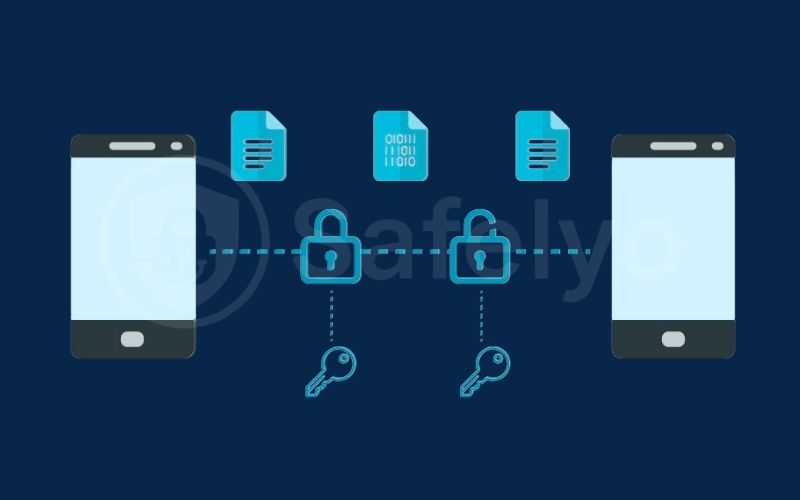
5.4. Be mindful of “Third Party Contributors”
It’s important to know that the surveillance network doesn’t strictly end at 14 countries. The Five Eyes also have close intelligence ties with other nations, sometimes referred to as “third-party contributors” or partners. These often include countries like Israel, Japan, Singapore, and South Korea. While the risk is less defined, being aware of these extended networks reinforces the importance of choosing a truly independent and privacy-focused VPN jurisdiction.
6. FAQ about the 5/9/14 eyes
We’ve explored the circles of surveillance and the privacy risks they pose. Here are some quick, direct answers to the most common questions people have about these powerful alliances.
What are 5/9/14 eyes?
The 5, 9, and 14 Eyes are different tiers of a global intelligence-sharing alliance. The Five Eyes (US, UK, Canada, Australia, NZ) is the core group with the deepest cooperation. The Nine and Fourteen Eyes are expansions that include other partner countries that share intelligence, but generally with more restrictions than the core group.
What is the difference between 5 Eyes and 9 Eyes?
The primary distinction lies in the level of trust and integration. The Five Eyes represents the inner circle of “best friends” who share nearly everything automatically. In contrast, the Nine Eyes encompasses a broader group of “good friends” (the core five plus Denmark, France, the Netherlands, and Norway) that shares information more selectively. While cooperation in the Nine Eyes is notable, it is not as deep or automatic as within the core five.
Is NordVPN in the 14 Eyes?
No, NordVPN is not in a 14 Eyes country. It is headquartered in Panama, which is widely considered a privacy haven because it has strong privacy laws and no affiliation with the Five Eyes alliance. This VPN jurisdiction is a key reason it is often recommended for privacy-conscious users.
What is the safest country to connect to a VPN outside the 14 Eyes?
Some of the safest and most popular countries for a VPN jurisdiction outside the 14 Eyes are Panama, the British Virgin Islands (BVI), and Switzerland. These countries have strong data protection laws and are not part of any major surveillance alliances, making them an ideal legal home for a privacy-focused service.
Why is it called “Five Eyes”?
The name originated from the classification marking on early intelligence documents shared under the UKUSA Agreement. These documents were stamped “SECRET – AUS/CAN/NZ/UK/US EYES ONLY”, which was eventually shortened to the nickname “Five Eyes”.
Do these surveillance alliances only target criminals and terrorists?
While that is their stated public purpose, documents leaked by Edward Snowden revealed that these programs conducted indiscriminate mass surveillance. They collected data on billions of ordinary, non-criminal citizens worldwide.
7. Conclusion
The Five, Nine, and Fourteen Eyes alliances represent the most powerful network of state-sponsored surveillance in history. Understanding them is no longer a niche concern for spies and journalists – it’s a fundamental part of digital literacy for anyone who values their privacy.
- The Five Eyes alliances are tiered groups of countries that share intelligence, with the Five Eyes at the core.
- They pose a privacy risk due to their ability to bypass domestic surveillance laws.
- Your VPN’s jurisdiction is critical; choosing one outside the 14 Eyes is the safest bet.
- An audited no-logs policy is your ultimate protection, as a VPN can’t share data it doesn’t have.
You don’t need to be a spy to care about surveillance. By making informed choices about the digital tools you use, you can cast a powerful vote for your own privacy.
At Safelyo, a VPN’s jurisdiction and its verified privacy policy are key criteria in all our reviews. Explore our list of the Best VPN Services in our Privacy & Security Basics section to find a service that is built to protect you from all prying eyes.


